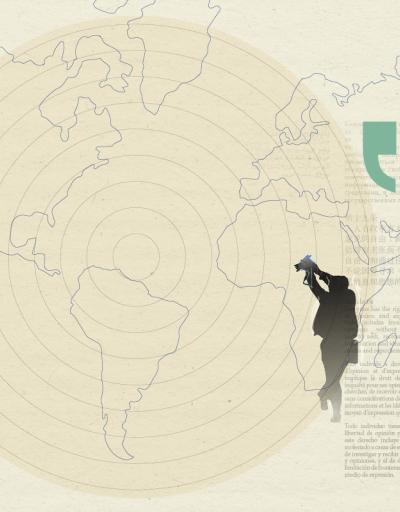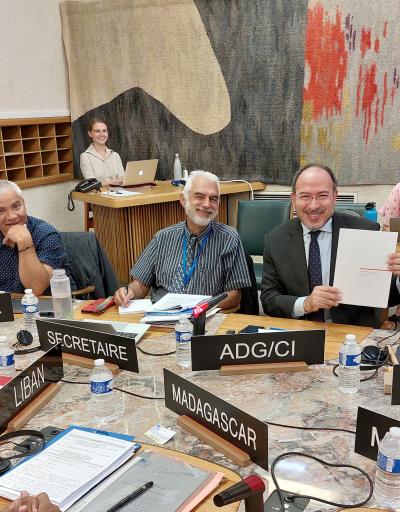
About
Created in 1980, the International Programme for the Development of Communication (IPDC) is the only multilateral forum within the UN system designed to mobilize the international community around media development issues.
Its actions are twofold:
It acts as laboratory for ideas on emerging and pressing media policy issues. The IPDC Council discusses and promotes normative texts to secure a healthy environment for the growth of free and pluralistic press. It is, for example, the cradle of the UN Plan of Action on the Safety of Journalists and the Issue of Impunity. Guided by the Windhoek+30 Declaration whose principles were endorsed by UNESCO's General Conference, IPDC tackles new emerging media policy issues head-on, including media viability and the transparency of digital platforms.
It gives seed funding to grassroots and local actors tackling the media issues of the 21st century on the ground. By providing funding to media development projects that contribute to sustainable development, democracy, and good governance, IPDC supports the implementation of the standards it sets while developing institutional and human capacities.
IPDC Priorities
As reflected in the decision of the 60th IPDC Bureau (2016), the IPDC’s priorities are :
- Supporting media pluralism (particularly community media) and independence (improving self-regulation and professional standards);
- Promoting the safety of journalists;
- Countering hate speech, promoting conflict-sensitive journalism and promoting cross-cultural/cross-religious dialogue;
- Supporting law reform to foster media independence;
- Conducting media assessments and research based on UNESCO indicators;
- Capacity building for journalists and media managers, including by improving journalism education.


Theory of Change
IPDC engages actively with duty bearers, media institutions, civil society organizations, and academia to expand opportunities for free, independent and pluralistic media, particularly in developing countries, countries in transition, and countries in conflict and post-conflict situations.
The Programme’s intergovernmental character enhances the consensus-building and confidence of Member States, both donors and beneficiaries of the IPDC, in carrying out of activities pertaining to media development. This thus strengthens UNESCO’s ability to serve as a bridge between governments and other stakeholders – i.e. between duty-bearers and rights-holders.
Multilateralism as a Cornerstone
For political and ethical reasons, multilateral cooperation is the most appropriate way of promoting media development. International assistance provided through IPDC does not interfere with the integrity and independence of media institutions.
In all its funding modalities, UNESCO recognizes the strong link between supporting press freedom, enabling a plurality of voices, addressing oppression, ending conflict and alleviating poverty.
In this calculus, a healthy, pluralistic media sector is a central enabler for sustainable development.
The IPDC founders considered that “assistance to developing countries should not be politically tied and that favorable conditions should be enhanced to facilitate better access to modern communication technology for developing countries” (Recommendation on the International Programme for the Development of Communication).
The Special Account of the IPDC helps to answer this call. It responds to Member State requests for support, which its Bureau offers through grants to media, academic and civil society actors to improve their involvement in media and communication, and to engage with governmental strategies impacting media development.
Its bottom-up approach, responding to grassroot initiatives, allows the IPDC to generate shared priorities between UNESCO and international development goals and national and local communities.



